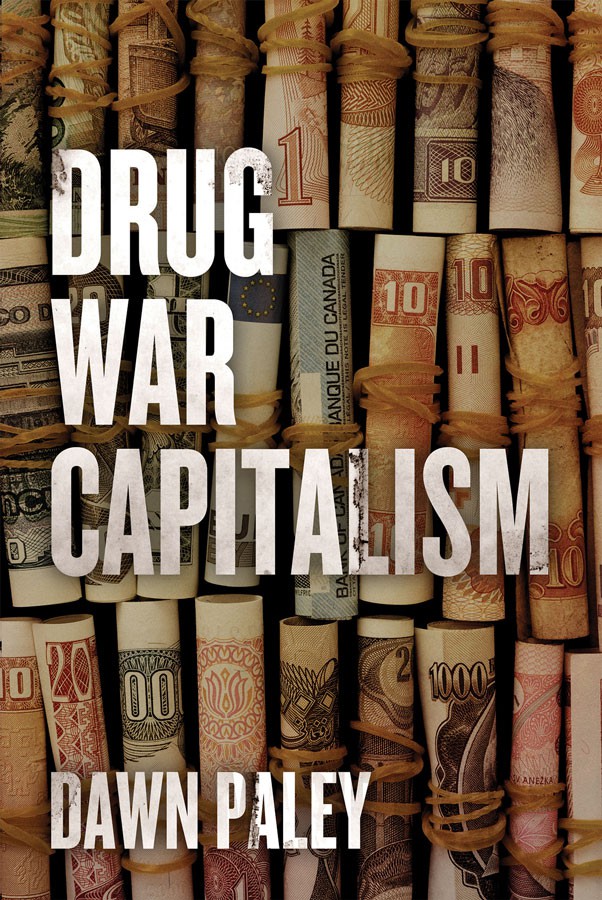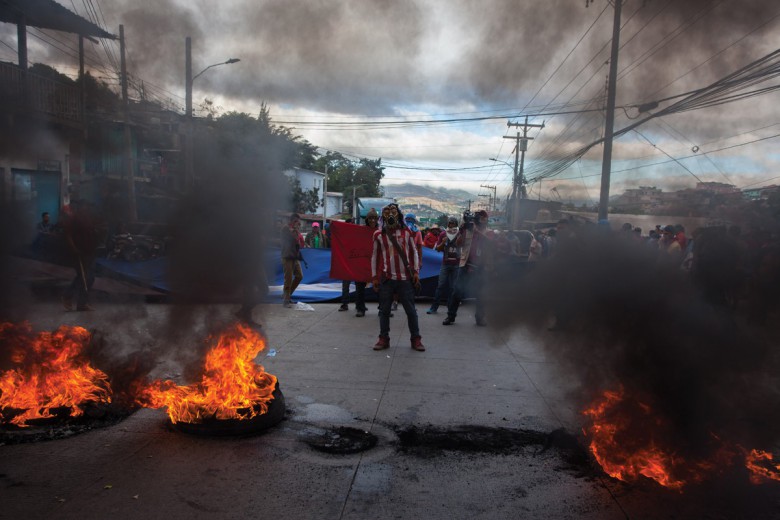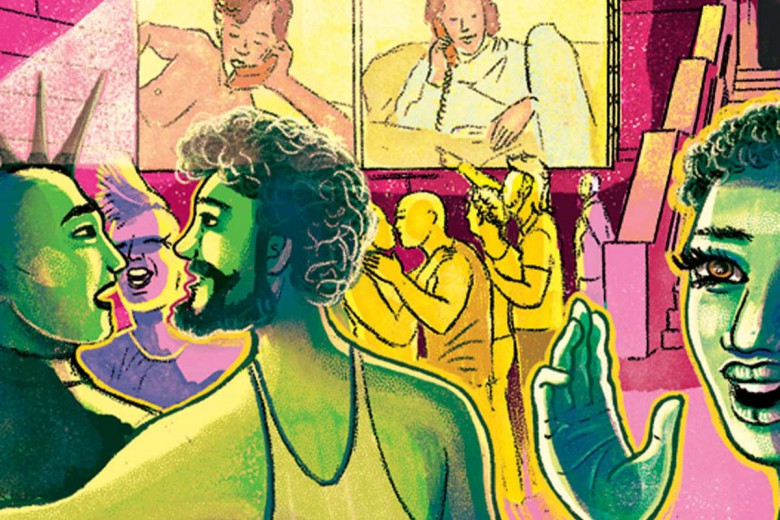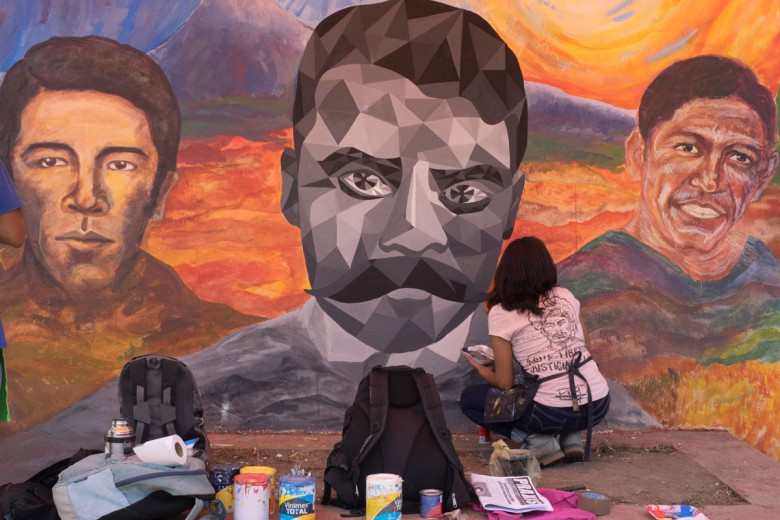
Drug War Capitalism
By Dawn Paley
AK Press, 2015
Do you know the story of Mexico’s 43 missing student-teachers? Scrutinize any in-depth account, and you’ll start to question everything you thought you knew about the so-called war on drugs.
In the fall of 2014, students from the teachers’ college of Ayotzinapa in Guerrero, Mexico, commandeered buses to transport them to a protest and were attacked by police in the town of Iguala while the military stood by. Four were killed, and 43 students were never seen again.
To a weary and terrorized body politic, news of the attack came like a shot of pure adrenaline. Citizen-led searches turned up many mass graves nearby, but none contained the remains of the students. Federal authorities, seeking to close the case in the face of widespread outrage, eventually blamed a gang-infiltrated police force, a corrupt mayor, and local gang members, but the official account was rife with inconsistencies. Some believe, with good reason, that the students met their deaths at a military base very close to the scene of the attack, their bodies incinerated in ovens there.
The official response throughout has been silence, obfuscation, and cover-up, fuelling the outrage that has filled the streets of Mexico’s major cities. The state congress building was torched, the mayor fled, the governor resigned, and week after week, hundreds of thousands marched, united by two things: a demand that the students be returned alive, and the three-word accusation, fue el estado, “it was the state” – a condemnation of the entire political edifice and its repressive apparatus.
Indeed, the unpopular government of President Enrique Peña Nieto now stands exposed as corrupt, criminally inept, and complicit in the paramilitary violence that has terrorized the country. This, at the very moment Peña Nieto was pushing through a series of neoliberal reforms sure to widen Mexico’s deep inequalities – reforms that the students of Ayotzinapa were actively protesting.
As the first gruesome reports of these attacks were surfacing, an important book by a Canadian investigative journalist was going to press that exposes the conventional narrative of the drug war as entirely inadequate for making sense of these events. Dawn Paley’s Drug War Capitalism, published last fall, argues that the real aim of the drug war in Latin America is not to stem the northward flow of drugs (which it has consistently failed to do), but to augment the northward flow of capital: opening markets, imposing pro-extraction legislation, displacing communities from resource-rich land, and decimating recalcitrant social movements through fear, forced disappearance, and extrajudicial killing.
“There are,” Paley writes, “three principal mechanisms through which the drug war advances the interests of neoliberal capitalism: through the imposition of rule of law and policy changes, through formal militarization, and through the paramilitarization that results from it.” Drawing on years of research and courageous frontline reporting, Paley details the evolution of this strategy, from its first coherent formulation in Plan Colombia in the early 2000s to the drug war that for nearly a decade has raged through Mexico, to the war’s more recent spread to Guatemala and post-2009-coup Honduras.
The picture that emerges is of an increasingly coherent neoliberal endgame, the U.S. government and local elites using the terror and impunity that result from militarized policing to advance a program of privatization, pro-corporate reform, suppression of dissent, and significantly expanded resource extraction. The manufactured “permanent shock” of drug war capitalism, Paley’s research shows, is great for business, and death for anyone who stands in its way.
Though much of Drug War Capitalism focuses on the voices of communities in resistance, Paley devotes little space to profiling groups that are consciously challenging drug war capitalism as such. According to Paley, this is because such movements do not exist: “This book may leave some readers filled with a sense of despair or hopelessness,” she observes, “but it would be dishonest to pretend that there is a unified resistance movement taking on the drug war in the hemisphere. Rather, it is from many autonomies and from many communities that the strongest challenges to capitalism are being mounted.”
Paley thus refuses to indulge North American readers’ desire for closure with false hopes of imminent change, but as her book itself makes clear, the seeds of a unified resistance movement are indeed sprouting in all four countries profiled: “As I neared completion of this book in the spring of 2014,” she writes, “I found that I was meeting more and more people who shared an analysis similar to that included within these pages.” It remains to be seen whether, or how, a systemic understanding of drug war capitalism might yet help unite these diverse “autonomies,” or what the impact might be of policy victories like Uruguay’s 2013 legalization of marijuana, or of more recent social eruptions like Ayotzinapa, but Paley’s frontline journalism-from-below is exactly what is needed to give such a nascent movement voice and form, by assisting participants in diverse struggles across the hemisphere to see themselves and one another as its protagonists.
What makes Drug War Capitalism uniquely valuable is its explicitly anti-capitalist, anti-imperialist, and social movement-centred formulation of the issue: identifying neoliberal capitalism as the engine of drug war policies, and strong social movements, Indigenous rights, and national self-determination as casualties. What is needed now, and where future work from Paley and others pursuing this line of analysis must surely go, is to begin to frame the resistance to drug war capitalism in the same anti-capitalist, anti-imperialist, and social movement-centred terms: a continental struggle against the impunity, corruption, privatization, militarization, northern domination, and accelerated resource extraction that characterize this policy aberration. Perhaps only such a unified movement is capable of forcing junkie capital off its drug war habit.






